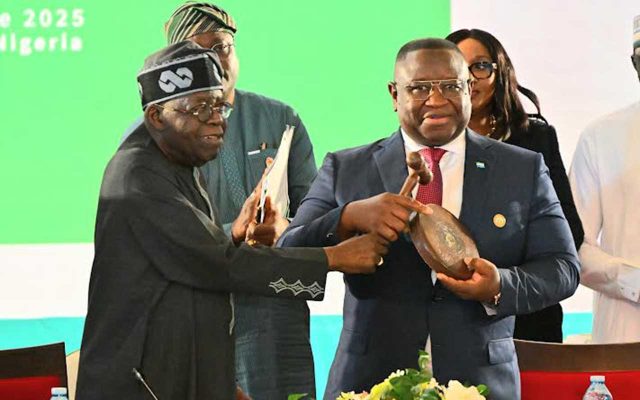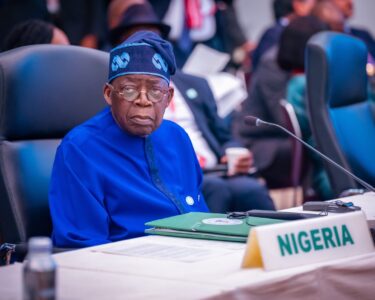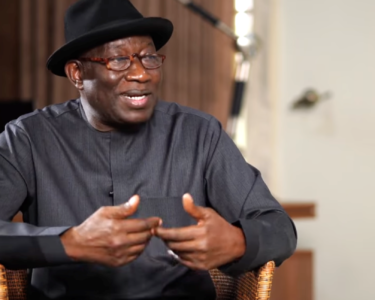ECOWAS Leadership
Julius Maada Bio takes over from Tinubu
Summary
- Sierra Leone’s President Julius Maada Bio succeeds Tinubu as ECOWAS chair, vows people-focused leadership
- New priorities include restoring democracy, boosting security cooperation, and reforming ECOWAS institutions
- Bio’s tenure begins amid rising instability, economic challenges, and withdrawal of key member states
Abuja, Nigeria — President Julius Maada Bio of Sierra Leone has assumed the chairmanship of the ECOWAS Authority of Heads of State and Government, pledging to lead a more responsive, action-driven regional body focused on democracy, security, integration, and institutional credibility.
Succeeding Nigeria’s President Bola Ahmed Tinubu on June 22, 2025, Bio stepped into the role at a time of heightened political tension and socio-economic instability across West Africa. In his inaugural address, he outlined a four-point agenda aimed at revitalising ECOWAS and restoring trust among citizens.
“We must build a people-centered ECOWAS that reflects the aspirations of our citizens, particularly our youth,” Bio said, promising to deepen democratic norms while constructively engaging with transitional governments in Burkina Faso, Mali, Niger, and Guinea, countries currently under military rule.
The Sierra Leonean leader reaffirmed ECOWAS’s commitment to the 2001 Supplementary Protocol on Democracy and Good Governance, which enforces zero tolerance for unconstitutional changes of power. However, he stressed that democracy must go beyond elections to include transparency, accountability, and inclusion.
On security, Bio acknowledged the growing threat of terrorism, illicit arms, and transnational crime across the Sahel and coastal states. Echoing his predecessor Tinubu’s concerns, he urged the swift activation of the ECOWAS Standby Force and called for a security overhaul that includes stronger intelligence sharing and rapid deployment capacity.
“As the threats we face are transnational, our response must be collective, agile, and resolute,” Bio said.
His reform plan also includes improving institutional efficiency and regional integration through the revitalisation of trade schemes, infrastructure projects, and cross-border value chains, particularly targeting youth and women for economic empowerment.
Bio’s chairmanship comes at a critical moment, with Mali, Burkina Faso, and Niger withdrawing from ECOWAS to form the Alliance of Sahel States, challenging the bloc’s cohesion and enforcement of democratic principles. While Tinubu had initiated diplomatic efforts to reintegrate the breakaway states, Bio is expected to continue those engagements while pushing for broader reforms.
Known for his education reforms and anti-corruption efforts in Sierra Leone, Bio brings a background rooted in democratic ideals and development. His leadership is widely seen as a test of ECOWAS’s ability to adapt and remain relevant amid a wave of political upheavals, economic hardship, and shifting global alliances in the region.







